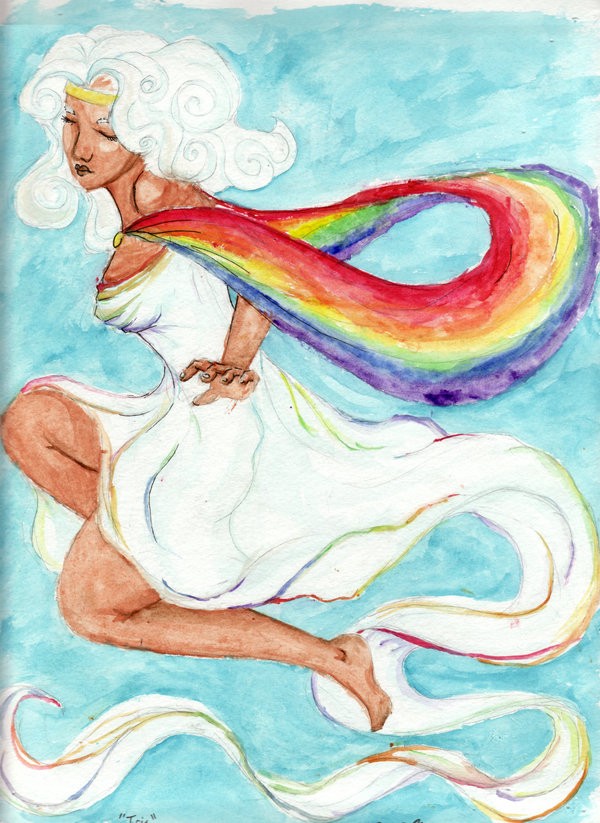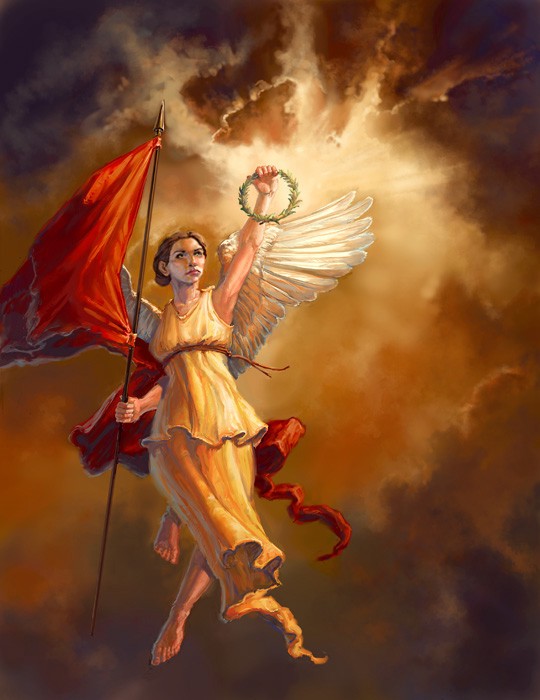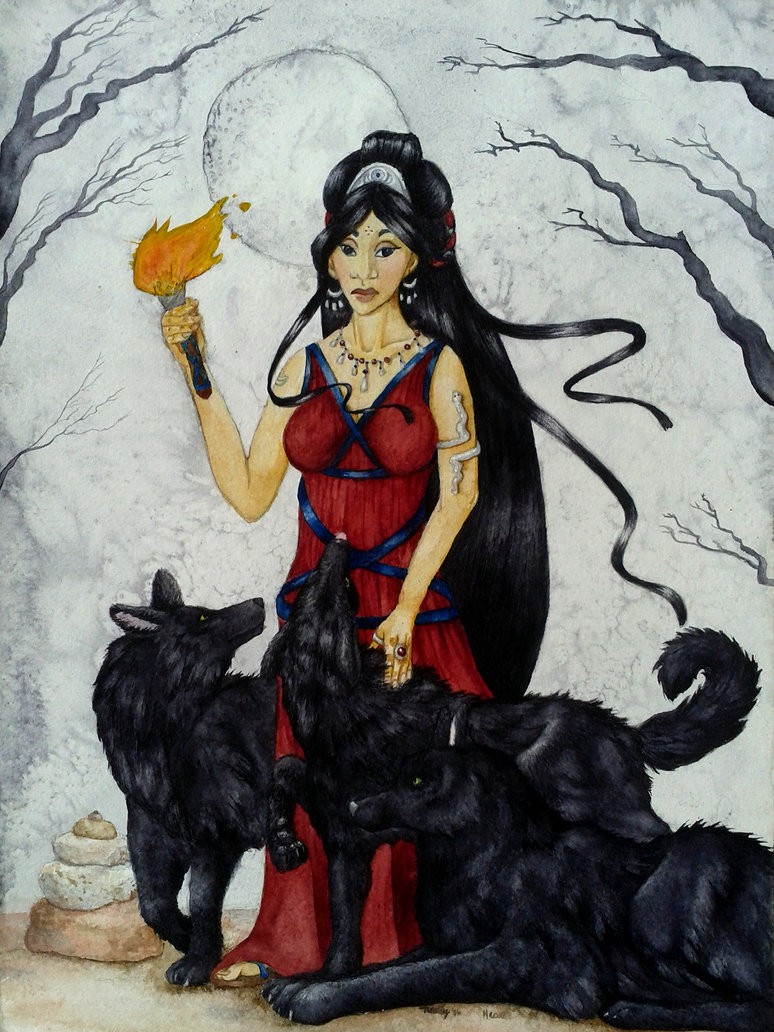What is a goddess? The word alone sounds somewhat whimsical and maybe even a little silly given its recent and unfortunate attachment to Fifty Shades of Grey (Although I like the idea of every woman having an inner goddess, I would not recommend finding it within that particular series). A quick Google search helps and keeps it pretty straightforward: ?a deity in the form of a woman who is adored, especially for her beauty?. Although this may be somewhat true, my own definition would be something a little different. I don?t think beauty or complete adoration have much to do with it. When I picture a goddess, I see a glowing, confident woman ready to take on the world. A goddess is a legendary woman who is celebrated and respected and she brings many skills to the table.
For as long as I can remember, I have had a fascination with Greek mythology. I have no clue why, but for some reason I easily find myself engrossed in anything and everything related to it (maybe some is from reading Percy Jackson and the Olympians). I was familiar with the popular goddesses, of course: Aphrodite, Hera, Athena, but I only knew about the more famous goddesses from Rick Riordan?s series. After doing research, I found a number of Greek goddesses I wasn?t as familiar with. Although some were exactly what one would expect of the times (goddesses of marriage, the home and fertility), others I found to be rather unique and distinctive. These ladies weren?t always described as beautiful and adored, but they didn?t need to be. Their traits reveal them to be multifaceted individuals; they are intelligent, compassionate, energetic, strategic and cunning. Each has a fascinating story that emphasizes how women were viewed as more than just homemakers at the time.

1. Themis
As the goddess of justice and law, Themis had a powerful role to play. I would say she was the ?career woman? of Greek mythology with everything she had on her plate. Themis, which in Greek means ?divine law,? was a judge who was said to have introduced all of humankind to the moral and ethical principles of justice. Not only that but she was a counselor to Zeus and one of his very first wives. Since Zeus needed so much guidance, Themis often had the opportunity to preside and bring order to all the assemblies of the gods. She was also known for her visions of the future; she prophesized the fall of the Titans and was even called the goddess of oracles.
Fun fact: with Zeus, she passed on her talents and gave birth to the Fates ? remember those three old ladies in Disney?s Hercules who kept passing their one eyeball around? Yup. Basically, Themis was a big deal and I?m shocked there aren?t more representations of her in the media.

2. Iris
If Themis is the career woman of Greek mythology, I would say Iris is the greatest friend a girl could ever have. I mean, she is the goddess of rainbows, so what more could you ask for? In all seriousness, though, her tale is pretty fascinating. Iris was a personal messenger to Hera (the goddess of marriage and the most famous wife of Zeus), and although there is not as much said about her in myths, in my mind I like to imagine the two as close confidantes. When the Greeks saw a rainbow appear between the sky and the sea, they believed Iris was the one that used a pitcher to take water from the sea and bring it back to the clouds for rain.
Fun fact: There is a beautiful flower named after her, which alludes to the large number of colors present in the plant species. Also the name for a rainbow in Spanish to this day is an ?Arco Iris? or iris-colored arc.

3. Nike
So, I always assumed the popular shoe brand Nike was named after a Greek God, but I was pleasantly surprised to discover that she was actually a goddess. She wasn?t just any goddess, but the goddess of victory. A pure athlete at heart, Nike fought in the Titan War as a Charioteer to battle alongside the gods. Although there isn?t much mythology centered on her, she is often grouped with Athena, the goddess of wisdom and war.
Fun fact: The Roman translation of her name is actually Victoria.

4. Hecate
As the goddess of magic, witchcraft and all things supernatural, Hecate had an air of mystery an intrigue about her that could not be denied. She had a fairly large role to play in Greek mythology. When Demeter?s, the goddess of agriculture, daughter Persephone, the goddess of the Underworld, went missing, Hecate used torches to light Demeter?s way during the search for her lost child. When Persephone returned in the springtime, bringing all the world?s growth back along with her, Hecate became her dearest friend and personal minister. As she is associated with the night, she often shows up with a number of different goddesses in myths along with Selene, the goddess of the moon, and Artemis, the goddess of the hunt.
Fun fact: Hecate was also the goddess of the crossroads, and she was never married.

5. Gaia
Gaia is kind of like the Greek version of ?Mother Nature.? She is the goddess of earth, and with the world on her shoulders she also supported the seas and mountains. In Greek mythology, she fought against anyone who tried to incarcerate her sons ? namely her husband, Ouranos, the god of the sky, Zeus, and, ironically, one of her sons named Kronos, who was a Titan. When Zeus threw her sons into Tartaros, which was a hell-like pit under the earth, she decided to create giants as a way to battle against him. She may have lost the fight, but she created giants and fought for her children the Titans, so could it really be argued that she was not amazing?
Fun fact: According to the Greek creation tales, without her, the universe and all other gods and goddesses would not exist.
Disclaimer: Information was obtained through the Theoi Project and belongs to Aaron J. Atsma. Encyclopedia Britannica and Goddess Guide were also used to gather background information . All research on Greek myths belongs to the respective owners and is summarized here for criticism and analysis only. All artwork used is also presented for criticism and analysis only and belongs to the following owners in the chronological order in which they were presented: (1): Lilia Osipova (2): Elise (3): Nicole Cardiff (4): Neely Stewart (5): Luke


